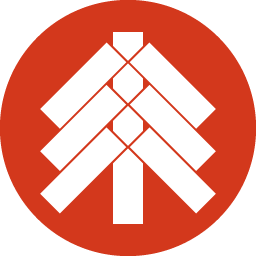<div align="center">

# Kagura
A front-end framework that runs on WebAssembly written in Rust.
</div>
## Big changes
- Supporting a batch process
- Experimental supporting of websocket
## Tutorial
### In English
[tutorial](https://soundrabbit.github.io/Kagura/)
### In Japanese
[[Kagura] Kagura + Rust でWebページを作成](https://qiita.com/ne_no_usa/items/0d8e33bad3aa7ec6d8fb)
## Hello World
```rust
extern crate kagura;
extern crate wasm_bindgen;
use kagura::prelude::*;
use wasm_bindgen::prelude::*;
#[wasm_bindgen(start)]
pub fn main() {
kagura::run(Component::new(init, update, render).with(Props), "app");
}
type HelloKagura = Component<Msg, Props, State, Sub>;
struct Props;
struct State;
struct Msg;
struct Sub;
fn init(_this: &mut HelloKagura, _state: Option<State>, _props: Props) -> (State, Cmd<Msg, Sub>) {
(State, Cmd::none())
}
fn update(_: &mut State, _: Msg) -> Cmd<Msg, Sub> {Cmd::none()}
fn render(_: &State) -> Html {
Html::h1(
Attributes::new(),
Events::new(),
vec![
Html::text("hello kagura"),
],
)
}
```
## Usage
### Create component
```rust
kagura::Component::new(init, update, render)
```
`init`, `update` and `render` is function :
```rust
init : fn() -> State
```
```rust
update : fn(&mut State, Msg) -> Cmd<Msg, Sub>
```
```rust
render : fn(&State) -> Html<Msg>
```
### Set a component to application
```rust
kagura::run(component, id_of_entry_point_in_html)
```
### Render Element
```rust
kagura::Html::html_tag(attributes, events, children)
```
`attributes` : instance of `kagura::Attributes`
`events` : instance of `kagura::Events`
`children` : Vec<Html>
#### Example
```Html
<ul class="list example" id="my-list" data-fizz="bazz">
<li>foo</li>
<li>bar</li>
<li>baz</li>
</ul>
```
is made by
```rust
use kagura::Html;
use kagura::Attributes;
use kagura::Events;
Html::ul(
Attributes::new()
.class("list")
.class("example")
.id("my-list")
.string("data-fizz", "bazz"),
Events::new(),
vec![
Html::li(Attributes::new(), Events::new(), vec![Html::unsafe_text("foo")]),
Html::li(Attributes::new(), Events::new(), vec![Html::unsafe_text("bar")]),
Html::li(Attributes::new(), Events::new(), vec![Html::unsafe_text("baz")])
]
)
```
### Render Component
```rust
kagura::Html::component(component)
```
`component` : instance of `kagura::Component`
### Transmit message to a parent component
`update` can send message to parent compoent as Some(message).
### Receive child message and bind to own message
`component.subscribe(impl: Sub -> Box<Any>)` can receive message from child component and bind to own message.
#### Example
```rust
fn render() -> Html {
Html::component(
child_component::new().with(props).subscribe(|sub| match sub {
child_component::Sub::Foo => Msg::Bar
})
)
}
mod child_component {
fn new() -> Component<Msg, Props, State, Sub> {
Component::new(init, update, render)
}
.
.
.
}
```
### Cmd
#### `Cmd::none()`
`Cmd::none()` means nothing to do. If you return Cmd::none(), kagura will render.
#### `Cmd::sub(sub: Sub)`
If you send sub-message to parent component, use this.
#### `Cmd::task(task: impl FnOnce(Resolver<Msg>) + 'static)`
You can use this feature like callback function in JavaScript. like this:
```rust
fn update(state: &mut State, msg: Msg) -> kagura::Cmd<Msg, Sub> {
use kagura::Cmd;
match msg {
Msg::ChangeMessage(message) => {
state.message = message;
Cmd::none()
}
Msg::ChangeMessageTask(message) => Cmd::task(|resolver| {
let resolver = Closure::once(|| resolver(Msg::ChangeMessage(message)));
web_sys::window()
.unwrap()
.set_timeout_with_callback_and_timeout_and_arguments_0(
resolver.as_ref().unchecked_ref(),
1000,
);
resolver.forget();
}),
}
}
```
### Batch
You can set a batch process to component like this:
```rust
fn init(this: &mut MyComponent, _state: Option<State>, props: Props) -> (State, Cmd<Msg, Sub>) {
this.batch(batch::time::tick(1000, || Msg::SomeMsg));
.
.
.
}
```